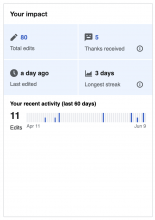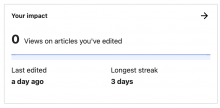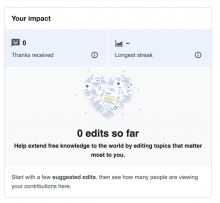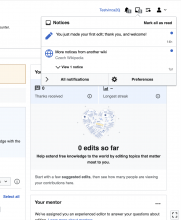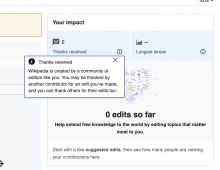User story & summary:
As a new editor who has edited outside of mainspace, I want the impact module's layout to make sense.
As the Growth PM, I want to be sure that our A/B test isn't influenced by the empty state logic.
Example of current issue
The old impact module only displays if a user has edited in mainspace. The new impact module should follow that same logic to ensure this change isn't impacting activation data in the A/B test AND so we ensure newcomers aren't seeing an odd partially empty impact module (or the demotivating "0 views" mobile preview card).
Mobile Preview: includes article view count (despite no article edits)
Background & research:
This task is important because 10% of new registrations activate outside of the main namespace. These account for 23–25% of activations on desktop, and 29–30% of activations on mobile. (From the Growth Pilot Wiki Levelling Up experiment T337320#8919203)
Acceptance Criteria:
Given I'm logged into an account that hasn't edited in mainspace,
When I visit the newcomer homepage,
Then I see the Impact module's empty state
